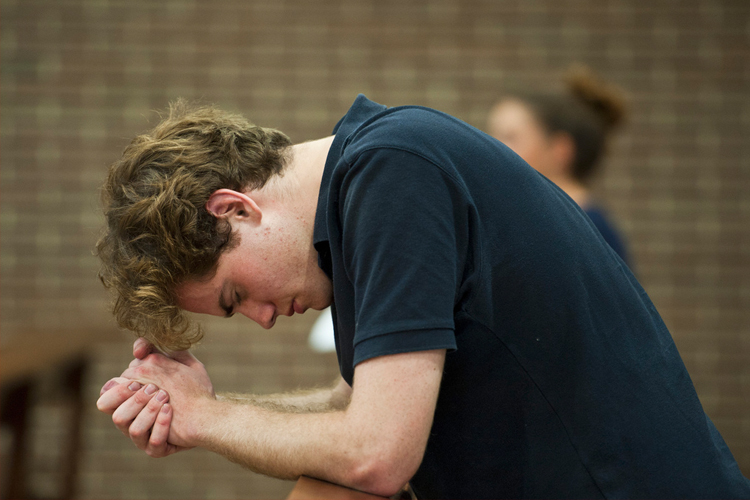
What is Prayer?
Prayer is speaking and listening to God and desiring to be united with God and to do his will.
Why do we pray to God?
We pray because he is God. It is therefore right to adore him, thank him and repent before him. We also pray because he listens and will act on our behalf when we pray, and because we come to know God, our greatest happiness, through prayer.
The principal activities of prayer
Christian prayer involves one or more of the following actions before God: adoration, an act offered to God which acknowledges his supreme perfection and goodness; thanksgiving, an expression of gratitude to God for his bounty in satisfying our spiritual and physical needs; repentance, a recognition of the wrong we have done to God by sin together with a desire to turn from evil and do good; petition and intercession, the asking of proper gifts or graces from God for oneself or on behalf of others.
Mistaken ideas about prayer
Is prayer just in the mind? Prayer is not just in the mind. God acts when we pray and frequently causes miraculous changes in ourselves and in the world.
Does prayer seek a mental void? Prayer is not a mental exercise to empty the mind, as in Zen Buddhism or yoga. Prayer always has God and the things of God as its focus.
Is prayer just a technique? Prayer is never a ritual technique like magic, simply seeking power or other benefits. Christian prayer leads to the knowledge and love of God.
How Do We Pray?
VOCAL PRAYER
The mental activity of prayer joined to the physical one of words and gestures. Examples are the Our Father, the Hail Mary, the Sign of the Cross and grace before meals.
LITURGICAL PRAYER
The official and public prayer of the Church, such as the Mass or the Divine Office. It involves the Church as a whole rather than individual Christians alone.
MEDITATIVE PRAYER
Mental conversation with God often facilitated through Scripture, other holy writings and images that reveal him and his works.
CONTEMPLATIVE PRAYER
A simple and loving apprehension of God or divine things brought about by the Holy Spirit and the growth of his gifts in our souls.
Difficulties in prayer and their remedies
No time – Put aside time for prayer anyway. God will give our time back to us and will give success to all our good activities.
Boredom – Persevere, turn back to God and perhaps try another kind of prayer. Learn more about what prayer means.
Distraction – Avoid distracting situations, but do not be too anxious about failure: God knows and rewards our efforts.
Dryness – Do not make feelings the measure of success. God blesses those who pray even when they do not feel like it.
No answers – Persist and ask God to reveal his will. He may also want to give us something other than we have asked for.
What can help us to pray?
A regular time for prayer each day is a great help. It is also helpful to find a holy place, such as a church, or to set up a place of prayer in one’s own home.
A Bible, Christian prayer books and devotional objects, such as holy pictures, a rosary and a crucifix, may also be used in prayer or may help to establish a holy place to pray.
Who can help us to pray?
The Holy Spirit helps us to pray as we ought. We can also ask the saints to aid us with their prayers. In particular, we can ask our most powerful intercessor, Mary, mother of all Christians, to pray for us and with us.
The Spirit helps us in our weakness; for we do not know how to pray as we ought, but the Spirit himself intercedes for us with sighs too deep for words. Romans 8:26
This article is originally from ‘CREDO: The Catholic Faith explained’ by CTS.
Video resources